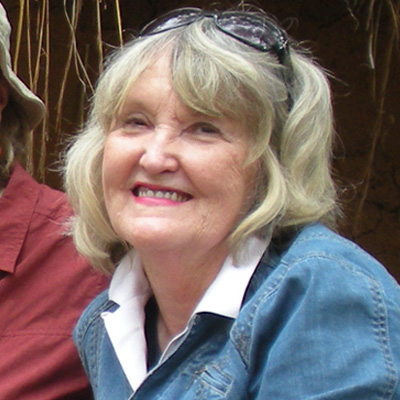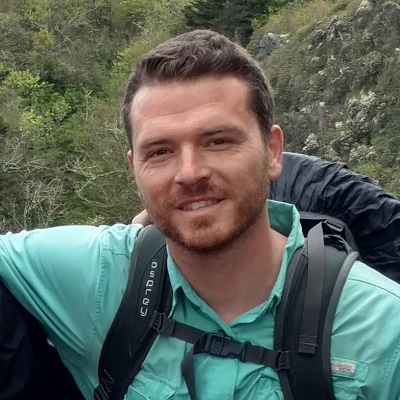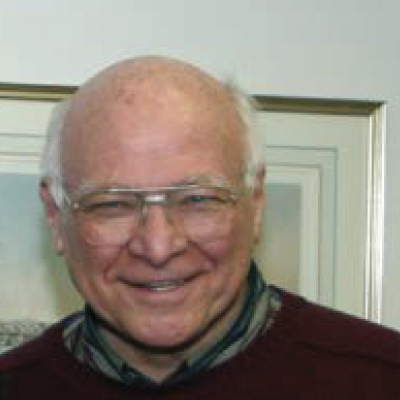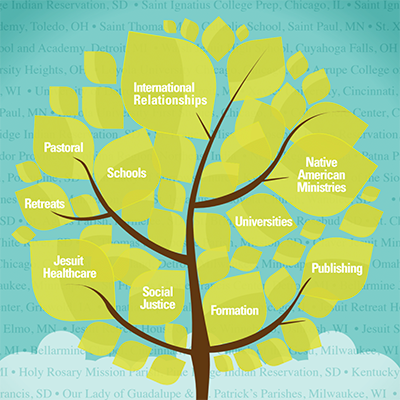By Michael Austin
As a young man with a PhD in English and a checked-off list of the four things he had wanted by that point in his life, Dr. Jayme Stayer had taken possession of his new home. The year was 2000 and as he put the key in the front door of the house, a striking image came into his head. This image was followed by a profound thought that quietly set in motion his serious discernment of becoming a Jesuit. Let’s not forget the people of John Carroll University, either; they played a part in letting him know that he was indeed on the right track.
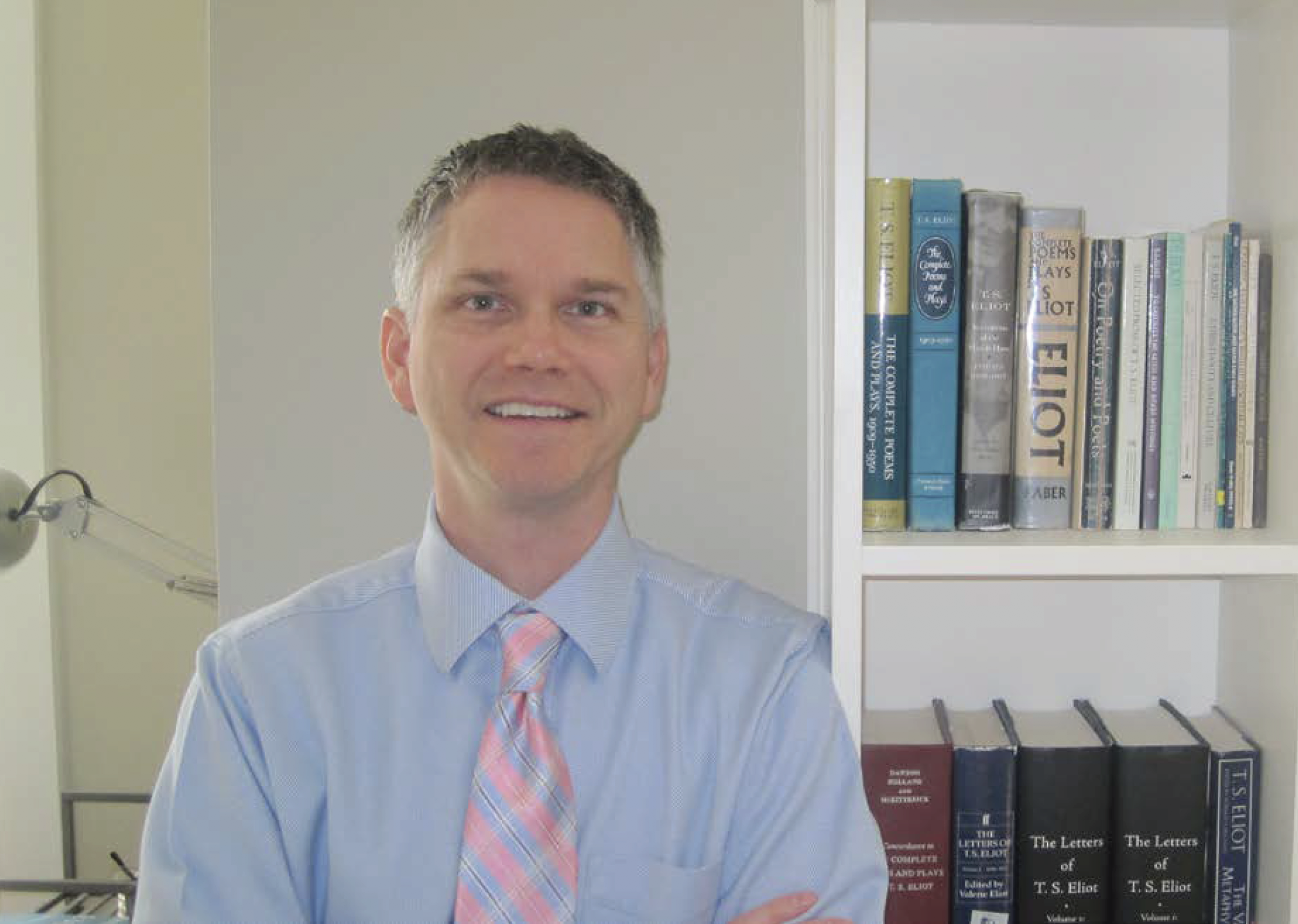
Fr. Jayme Stayer, SJ, is an associate professor at Loyola University Chicago and currently serves as president of the International T. S. Eliot Society.
Today Fr. Jayme Stayer, SJ, is an associate professor of English at Loyola University Chicago, one of the world’s preeminent T. S. Eliot scholars, an editor of Eliot’s prose, and the current president of the International T. S. Eliot Society. In January he traveled to Seattle to receive his latest honor for his Eliot scholarship, the Modern Language Association (MLA) Prize for a Scholarly Edition.
Father Stayer and his colleagues won for their painstaking editing of Tradition and Orthodoxy, 1934-1939, which is volume 5 of The Complete Prose of T. S. Eliot: The Critical Edition. Volume 6 of the series, entitled The War Years, 1940-1946, won the same honor. The eight-volume series is published by Johns Hopkins University Press.

“Their thorough contextual introductions, sophisticated annotations merging intelligent commentary with brevity and completeness, and superb indexes make the volumes a pleasure to read and to use,” reads the commendation released by the MLA judges. “Together they present new materials, open doors to further discovery, and enlarge our understanding of Eliot as the public intellectual at work.”
Father Stayer was about to begin a year’s sabbatical when approached about the project, and time was tight. He accepted the job and worked 14- hour days, seven days a week for a year straight to keep things on schedule. The result is the fully searchable volume 5, which contains every prose piece written by Eliot between 1934 and 1939. The series includes all of Eliot’s collected essays, reviews, lectures, commentaries from The Criterion—a small, prestigious literary journal edited by Eliot—and letters to editors. According to the general editor, the series offers all of Eliot’s known published prose pieces and adds more than 700 uncollected and 150 unpublished pieces from 1905 to 1965, the year Eliot died.
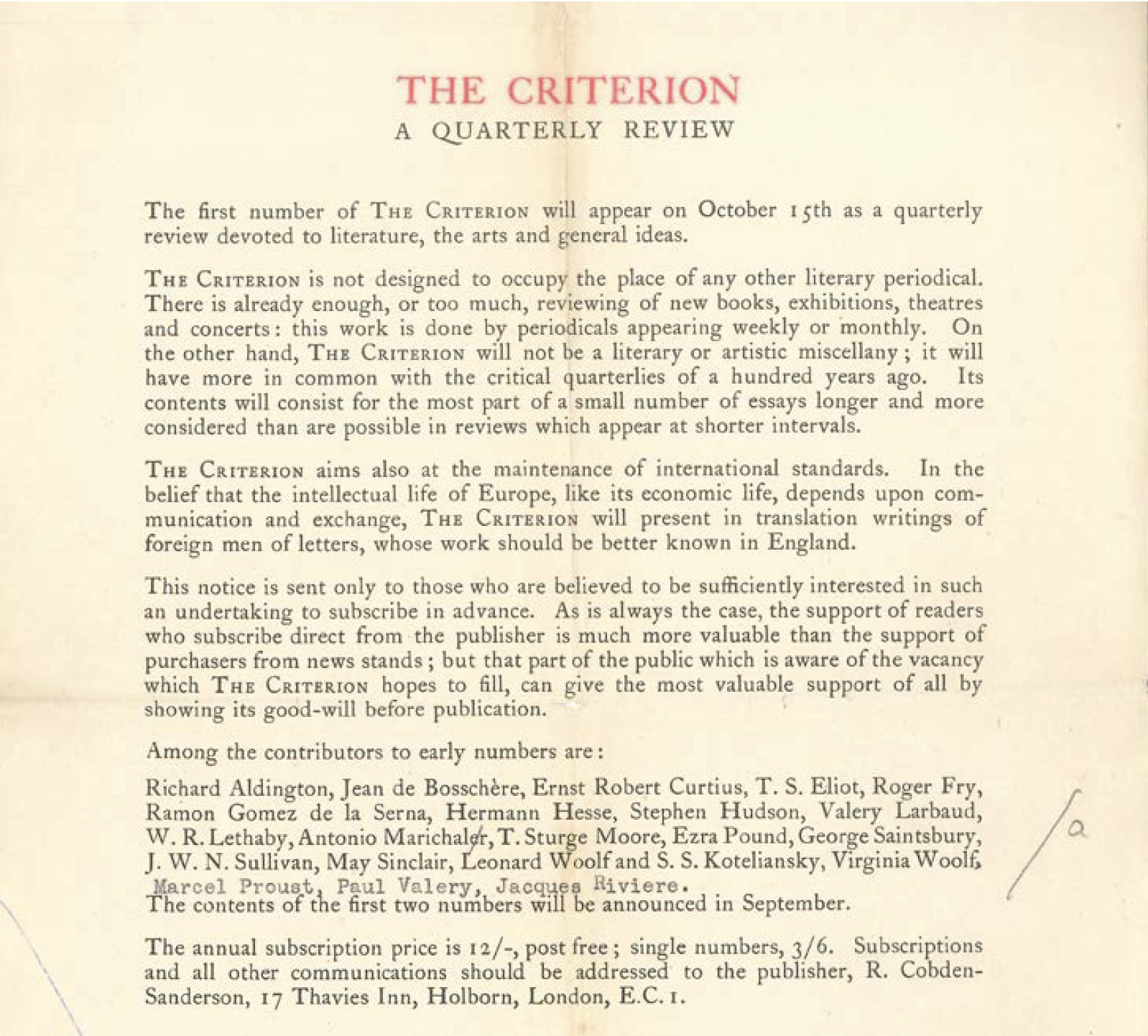
T.S. Eliot’s literary journal The Criterion is one of the pieces included in Fr. Stayer’s volume. Kindly provided by Faber & Faber and the Estate of T. S. Eliot
Father Stayer grew up in northeastern Ohio, the youngest of three children. As a high school student, he won a scholarship that allowed him to attend the University of Notre Dame, where he double majored in music and English, graduating in 1990. He left immediately for graduate school, earning his master’s degree and PhD in English at the University of Toledo, and only later working on his Master of Divinity in Theology at Boston College.
But it was the years between Toledo and Boston that changed the trajectory he had imagined for himself before he walked into his new home in Texas. That was where he had planned to settle in and begin his career as an English scholar and professor. He had moved there for a university teaching job and in a very short amount of time achieved his four major goals. He had his PhD tenure-track job, his own house, his grand piano, and his basset hound.
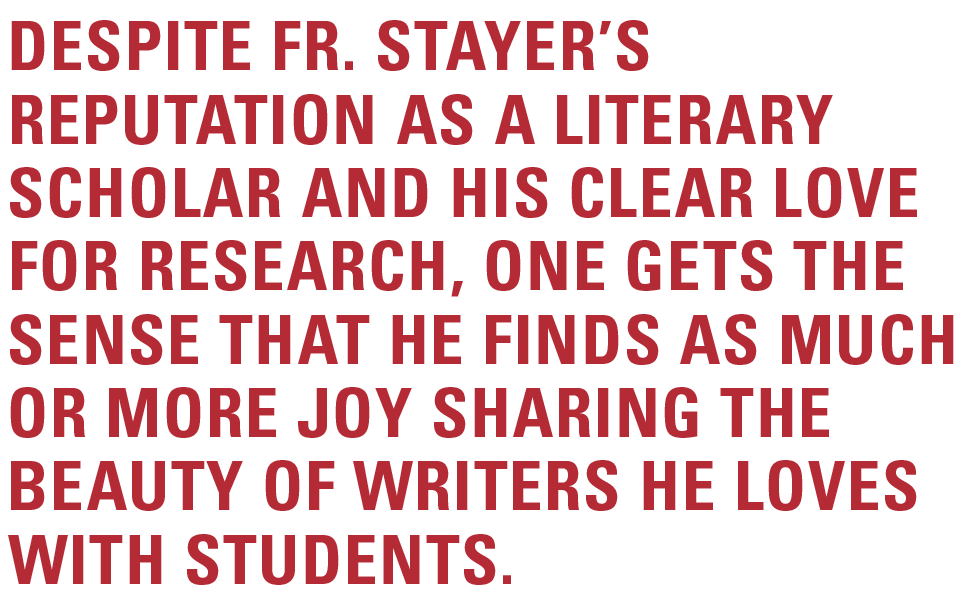
The mid-century house was one that a couple had lived in for decades, and in the normal course of home-buying conversation, he learned that the man had died first and the woman lived there as long as she could, until she had to be transferred to a care facility.
“The day I took possession of the house, I had an image in my head of that woman being wheeled out to her final resting place,” Fr. Stayer says. “I thought to myself, ‘Is that all that’s left? Is the rest of my life just a long slide down to the nursing home?’ I thought there must be something else.”
A short time later, 9/11 happened.
“I was praying to God, ‘If so few men can create so much violence in the world, what can I do that creates love commensurate to such violence, to cancel out that hatred?’ As soon as that prayer came out of my mouth, there was an image in my head of two priests who I really loved at the University of Notre Dame.”
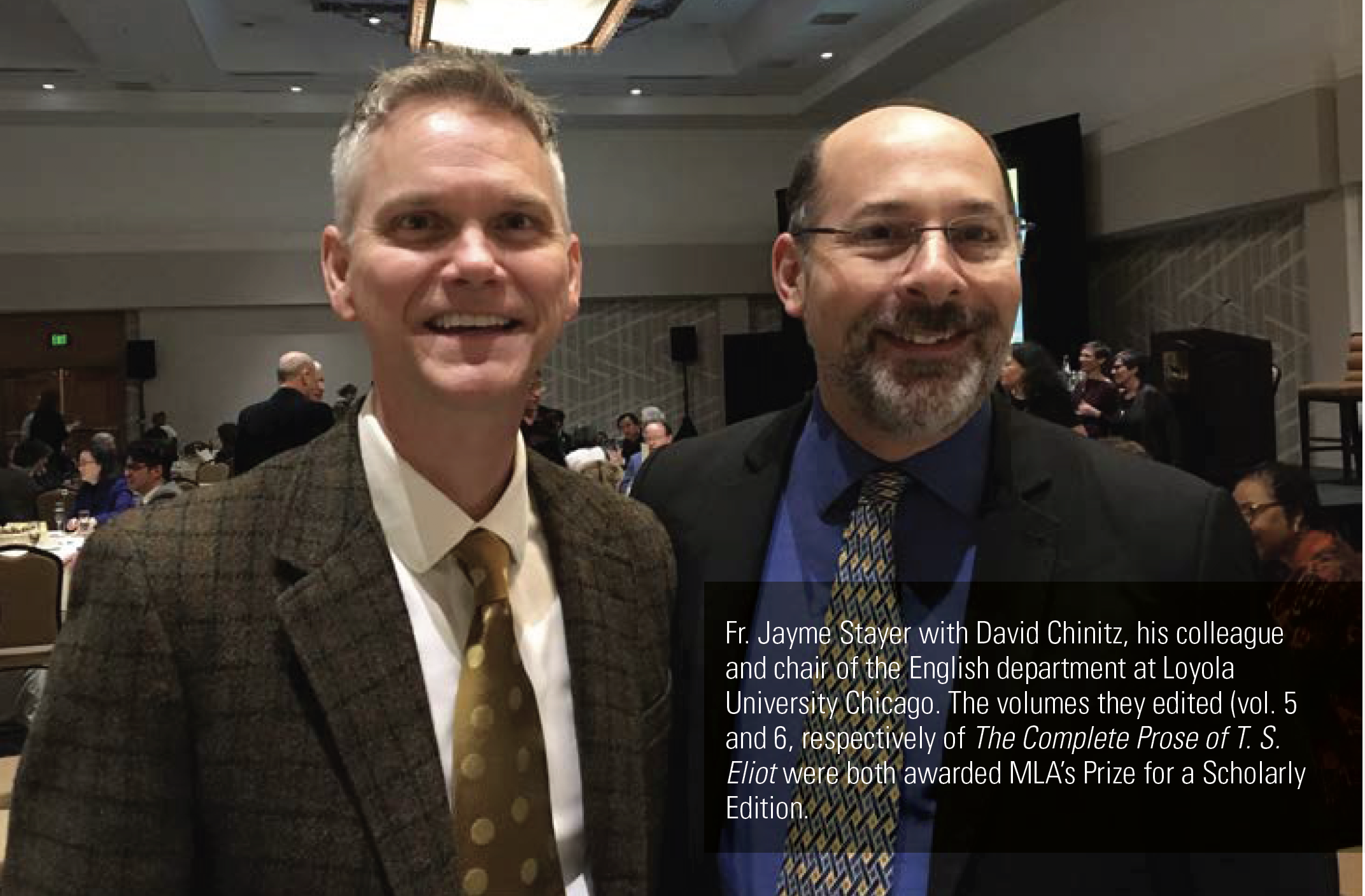
Suddenly, becoming a priest—not just any priest, a Jesuit—became a viable option to Fr. Stayer. He wasn’t unhappy with his life. It was just that the things he had accomplished and acquired were not the things he was living for. He had a Jesuit spiritual director at the time and had met Jesuits and become aware of their way of life—their dedication to education and social justice—during his years in Toledo.
“It didn’t even occur to me to join a diocese or visit monasteries,” he says.
One year of his regency was spent in El Salvador and two other years at John Carroll University, where he noticed an amazing thing happening. Though not yet an ordained priest, he was a Jesuit, and students were drawn to him in a way they never had been in his previous teaching jobs.
“As a lay person, as a professor, hardly any students came to my office to discuss a problem,” he says. “Even though I wasn’t a priest yet, I felt the people of John Carroll calling my priesthood out of me.”
Father Stayer also cites his time at John Carroll—eight years total; he was also assigned there after ordination—as what helped him learn to master the distinct duties of his two vocations.
“The teacher is the one who challenges and sets the bar high,” he says. “The priest has the merciful role, the one who brings healing and tenderness into the world. The roles aren’t exactly the same, and in fact can be somewhat opposed at times. But I learned how to integrate them at John Carroll.”

Now, as an associate professor of English at Loyola University Chicago, Fr. Stayer teaches a freshman-level introduction to literature class and a sophomore-level exploration of poetry class. Next year he will be teaching a graduate seminar on modernist literature.
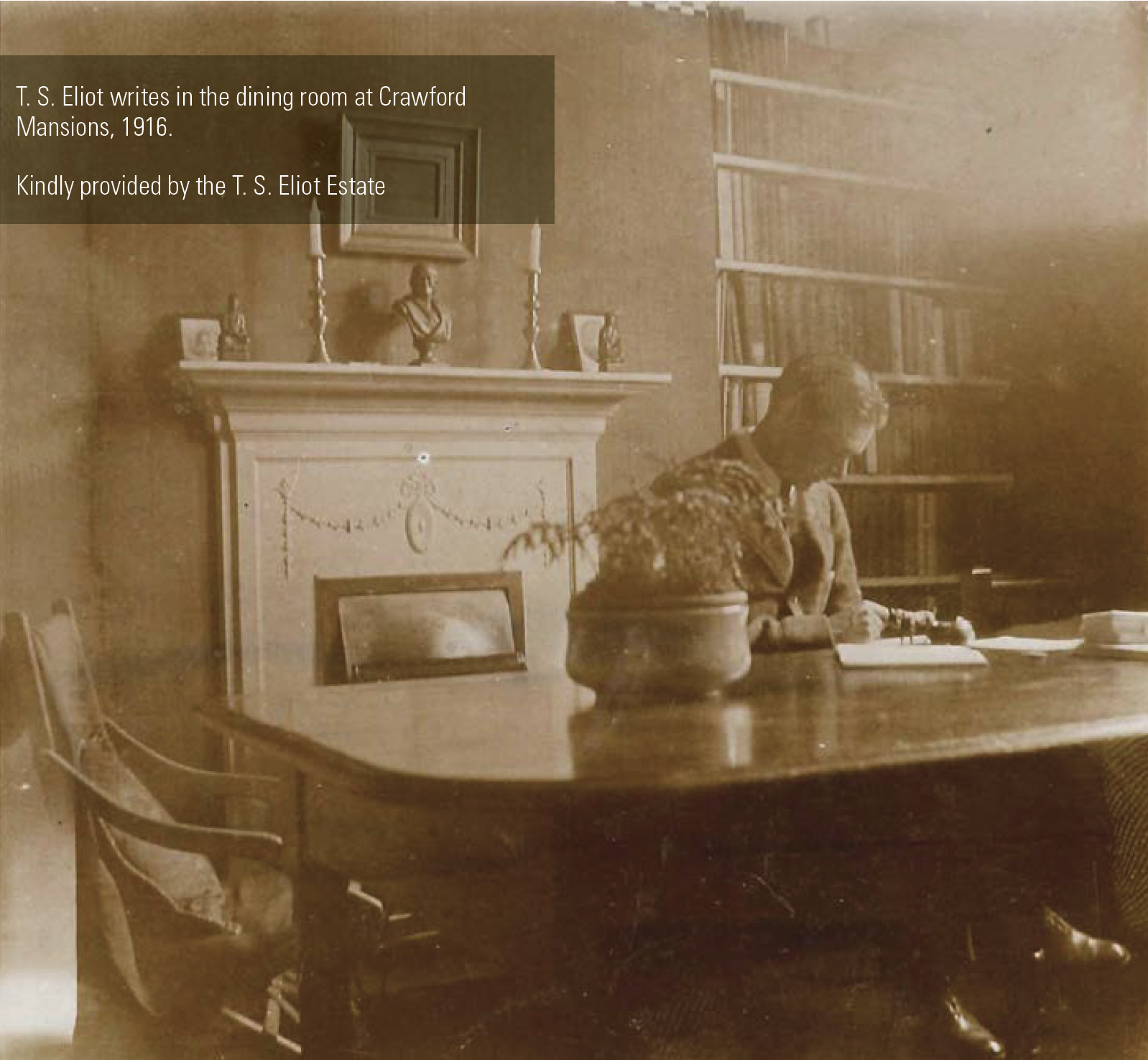
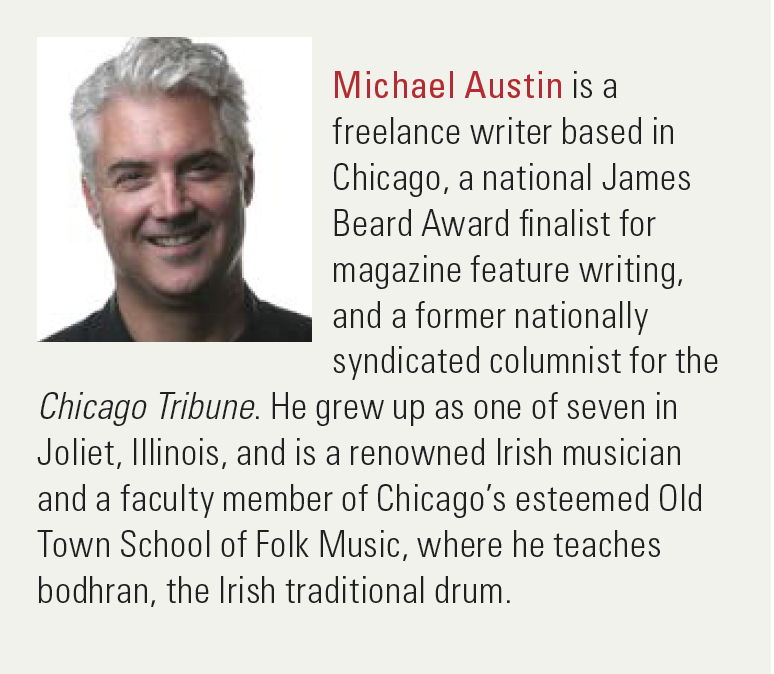
“I like teaching non-English majors,” says Fr. Stayer, whose doctoral dissertation was on Eliot’s poem “The Waste Land” and Igor Stravinsky’s opera Oedipus Rex. “In my first job after my PhD, I learned how to teach resistant students—the business students who think poetry is irrelevant and filled with arcane terms. Now we spend most of our class time figuring out who is speaking, and once they realize, ‘Oh, this is a curse, or this is an apology,’ the difficulty of the language is much easier to navigate.”
Despite Fr. Stayer’s reputation as a literary scholar and his clear love for research, one gets the sense that he finds as much or more joy sharing the beauty of writers he loves with students. Eliot is an obvious favorite, but so are W.H. Auden, Virginia Woolf, and William Butler Yeats.
“I could spend the rest of my life just teaching a course on those authors,” he says.
